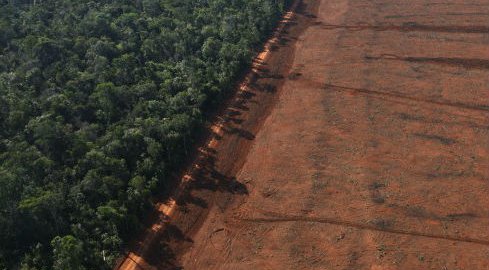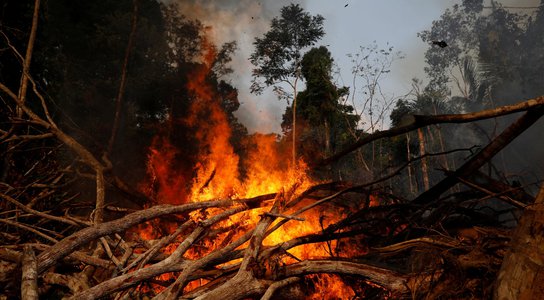The beginning of 2020 hit us all with daunting images of fires destroying vast areas of Australian biodiversity. The loss of precious wildlife and broken ecosystems has shown humanity a terrifying future if no ambitious climate action is taken.
In 2018, 3.6 million hectares of primary rainforest was razed, and the scientific community affirmed that 1 million animal and plant species are threatened with extinction. With last summer’s Amazon fires, deforestation is now at the fore of public concern and more than ever, industrialised countries, including the EU, must address their responsibility and act.
So it is timely that at the start of what will be a crucial year for global action on deforestation, the European Commission is convening an international conference on forests for biodiversity and climate to discuss the measures and regulations needed to better protect our world’s forests.
There are encouraging signs that EU policy makers are waking up to role of deforestation in the climate emergency. A broad agreement has recently emerged across the EU institutions that action, including regulatory measures, are now required to ensure that the EU’s supply chains do not contribute to deforestation. This received a welcome boost when it was featured in European Commission President Ursula von der Leyen’s Green Deal.
Key corporate actors, NGOs, including Global Witness, and a growing number of MEPs believe that regulatory measures to tackle deforestation should include mandatory due diligence. This would require companies to undertake checks to identify, mitigate and prevent risks of deforestation and associated human rights abuses.
Our latest analysis of the financing of six agribusiness companies linked to forest destruction in the climate critical forests of the Amazon, Congo Basin and Papua New Guinea found that EU-based financial institutions were the main international source of funds, after Brazil, and had backed these companies to the tune of €7 billion between 2013 and 2019. These staggering numbers should serve as a wakeup call to EU policy-makers that any action to tackle the EU’s deforestation footprint should not let finance off the hook.
Download the full briefing
here: Why EU action to tackle deforestation should not let finance off the
hook.
The European Commission recognised
the importance of redirecting
private finance towards activities that are deforestation free in its June 2019 Communication. We believe that this will only occur
through a coherent approach that places the same due diligence obligations on companies,
including banks.
Existing EU policy instruments and others under development show that due diligence on sustainability risks is developing into a core expectation of corporate actors. However, these measures are fragmented and fall short of requiring financial institutions to identify and mitigate deforestation risks.
As a major key player in the global markets of commodities linked to deforestation, the EU must show global leadership. An effective regulatory tool based on due diligence will be crucial tackling the EU’s role in the global deforestation crisis and should not let finance off the hook. This should be top of the EU’s agenda for its conference this week and a priority for action in 2020.


